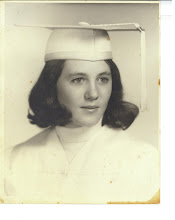Now, I have purchased 3 different editions of Gilgamesh and will read at least 2 of them. The first one I bought (sure, yeah, sure, I have one at home, but with 22,000 books in my little Hobbit-sized house, how in the HELL can I find it? I couldn't, is the answer.) The Knopf Doubleday edition, translated by the iconic John Gardner was set up very oddly. Why torment myself? So I went back to the bookstore (what a punishment, eh?) and bought 2 more.
I'm starting with the Penguin Classics edition, translated by N. K. Sandars. It is a prose version, oddly (why put an epic poem into prose? No clue.)

In fact, I started at lunch today (1:14 pm!) and am halfway through the Introduction. It may seem extraneous to some ("Cut to the chase!" "Get to the good part!"), but I actually love introductions to the classics, especially ones as old, and foreign as Gilgamesh.
How fascinating to discover the ancient nature of this work! And its discovery during archeological digs, as well as the time and genius it took to translate it.
That it is a pre-pre-Christian writing that was available to the Biblical authors - one which has a great section on the massive flood - it gives one pause about the origination of the Biblical version.
Too, that the epic was recorded on tablets, and in numerous languages, discovered throughout the Middle East, is a fascinating testimony to the desire of Man to preserve literature. George Smith, one of the men who pursued the remnants of the poem actually died in the attempt to locate additional tablets and uncover their origins.
In addition to exploring the literature itself, one of the many aspects of reading that thrills me, continually, without fail, is finding new words that I don't know.
I grew up at my Mother's knee watching her pull out her ancient dictionary - a gift from her parents, the coal-mining husband and wife from Scranton, PA - that was a high school graduation present that she carried with her forever. When it became too outdated to be useful, she moved on to the Webster's 9th Collegiate edition dictionary. If she finds a word she doesn't know (rare), she looks it up. If she has a dispute with a usage of a word, she looks it up. Unsure of the pronunciation - yep, look it up. Want to verify that she's right and the (fill in the blank) journalist/author/politican)is wrong? Check out the Websters!
Now I'd heard the word "antediluvian" before. BUT, I never thought about it. Probably have a vague idea in my head as to what it means. (Antiquated? Outdated?) (How many words do you do that with? Figure you know pretty much what it means but aren't 100% - couldn't define it if challenged?
So today, in the intro to Gilgamesh, the translator used the word "post-diluvian". Ah Ha! Hmm. Picqued my interest and off I went to the dictionary!
What do you know! I was actually right - sort of. Antediluvian, while meaning "outmoded" (online Websters) it also means "before the flood". This was probably was was being referred to in the intro. Post-diluvian? Natch. AFTER the flood! And there you have it - I learned something! Simple, painless, and oh, so satisfying!
Since learning, exploration and satisfaction is invariably my goal, and since it is 9:25 and I'm exhausted (I wonder what Pepys would have written about if he'd had MY day job!) I probably won't attempt to finish the Intro tonight. The book's small, really. Intro - 55 pages; Text: - 60 pages. And even though I'm going to read the 2nd version - a verse version - the Farrar Straus Girroux edition (translated by David Ferry) immediately following the Penguin edition
But I DO want to savor the experience, so I'll save it until I'm more aware, coherent and appreciative.
So on this "first day of school", boys and girls, what are you reading? What words have tickled your fancy, puzzled you, or inspired you?
Here's my wish for you: Make every day count. Challenge yourself. Learn new things. Debate. Expand your mind, broaden your horizons, and soar. You'll be happy that you did.
